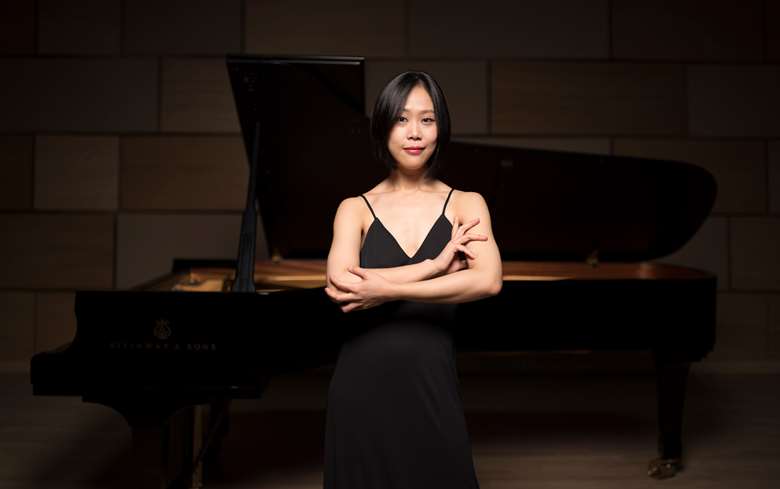Is the piano world inherently sexist?
Charlotte Gardner
Friday, March 8, 2024
Following the Leeds International Piano Competition’s introduction of steps to remove unconscious bias from its selection process, Charlotte Gardner reflects on some of the issues

Is the piano world inherently sexist? And is this being perpetuated by male bias in the world of piano competitions? That’s the two-pronged question arising from the Leeds International Piano Competition’s announcement that, in a bid to tackle male dominance in piano performance, it has introduced blind selections, unconscious-bias training for jury members and a new award for best performance of a female composer’s work.
It’s true that piano competitions are overwhelmingly won by men. Also, that just 22.5 per cent of pianists in the International Artist Managers Association’s roster are female. All of which contrasts sharply with roughly equal numbers of women and men pianists entering conservatoires. Yet – speaking as a journalist who has experienced piano competitions both from the audience and backstage, and been party more widely to many a professional discussion of pianists’ relative merits or deficiencies – my first response to this announcement was that I couldn’t recall a single instance of anyone expressing surprise over a female pianist’s presence in a competition final, or anyone questioning whether female pianists were physically disadvantaged in playing the piano repertoire. If you think of today’s top-tier, crowd-pulling pianists, women feature prominently. So where are all these sexists, I wondered, and why do they congregate in the piano world and not that of, say, the violin? Had I just been swimming in the wrong (or right) pools? So I began gathering off-the-record responses from people across the international competition circuit, and at the top of artist agencies, young artist schemes and educational institutions.
‘Something is going on with women and piano performance. Sexism, historic or current, will be part of it, but it feels more complicated than that’
These conversations were mostly encouraging, with the occasional sobering moment, which is in fact representative of what it’s like being a woman in the classical music industry of 2024. My digging did unearth the odd story that reinforced that the battle against sexist attitudes is not yet completely won. Yet there was also the sense that the situation is continually improving, not least because of retirements. One likely driver of change will be the increasing numbers of women conductors, and younger conductors of all genders, stepping into prominent orchestral positions, such is a conductor’s sway in who gets booked for a concerto.
There was no shortage of admiration for female pianists. One head of a leading academic institution commented that many top female pianists were too creative and active across multiple areas to allow themselves to be monopolised by a competition. What is striking is the low number of female pianists even applying to competitions. Despite the efforts of the Leeds Competition this year, only 30 per cent of its selected pianists are female, which tallies with the ratio of its applicants; in fact, 30 per cent is about standard for all the major competitions and this ratio often continues through to the final rounds.
Given the number of female pianists who win silver medals, it’s also worth remembering how much less final rankings matter now than they used to, with the exposure afforded to all finalists through digital streaming. Silver didn’t harm Beatrice Rana (Cliburn, 2013) or Yeol Eum Son (Cliburn, 2009; Tchaikovsky, 2011); the latter’s Tchaikovsky final famously set a new record for online streams of a live Mozart performance.
Back to the Leeds, and I think blind selections aren’t a bad idea, even if removing visuals does eliminate a vital element of a performance and detract from an artist’s toolkit for drawing in their audience. Humans are hard-wired to form an initial response to someone based on visual cues, and whether these involve how a candidate looks or moves, or whether they are, say, Asian (and the explosion in young Chinese pianists is likely to become a danger area for bias), jurors themselves might find it liberating to know that every candidate that has made it through the preliminary selection is there on purely musical merit.
I’m less sure about unconscious-bias training. Ideally, competitions will have invited a jury it believes will be guided by fairness and musicality. So what does unconscious-bias training add, beyond the feeling that if a jury doesn’t put through a certain quota of whatever it is – gender, race, age – they will be perceived as at best having failed, or at worst being prejudiced?
Something is going on with women and piano performance. Sexism, historic or current, will be part of it, but it feels more complicated than that. I wonder whether some of the answers will be found within the conservatoires. In any case, it’s good to have the Leeds putting the issue under the spotlight.
This article originally appeared in the Spring 2024 issue of International Piano. Never miss an issue – subscribe today















